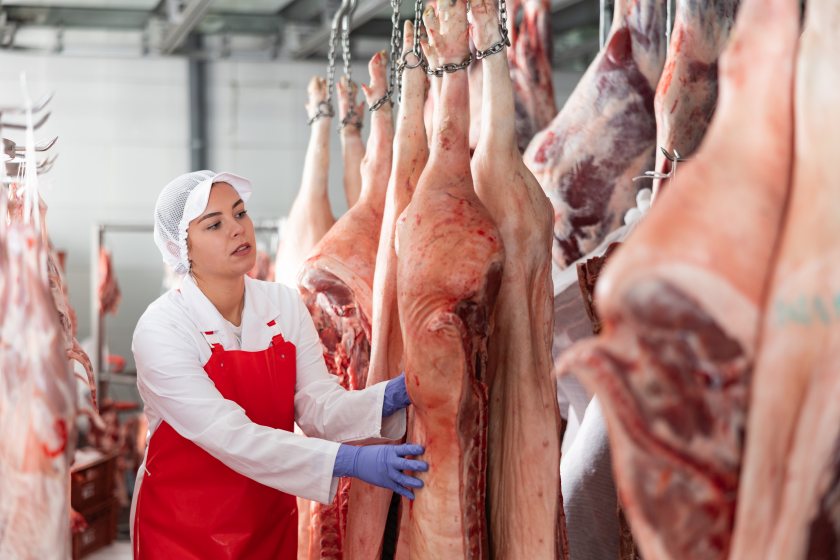
Industry leaders have vowed to defend the UK’s reputation for humane pig production after a government advisory report called for carbon dioxide (CO2) stunning to be phased out.
In its response to a recent Animal Welfare Committee (AWC) report, the Association of Independent Meat Suppliers (AIMS) said the document misrepresents modern slaughter systems and threatens to undo decades of welfare progress.
The organisation rejected calls for the sector to abandon CO2 in favour of alternatives it described as “unproven” and potentially more harmful.
The AWC report, published last week, concluded that exposing pigs to high concentrations of CO2 is “aversive”, causing pain, respiratory distress and fear before unconsciousness. It recommended phasing out CO2 stunning within five years and accelerating the development of alternatives.
Currently, around 90% of UK pigs are stunned using CO2; in 2024 about 10.3 million pigs were slaughtered, making it the dominant method both domestically and in many other major pig-producing nations.
AIMS maintains that, under UK practice, pigs are managed calmly in small groups and guided quietly into CO2 chambers, where they lose consciousness rapidly and without restraint.
The process, refined over decades, is monitored by trained staff and vets and operates under strict welfare laws. According to the trade body, this system minimises fear, handling stress and injury, and remains the most consistent and scalable stunning method available.
By contrast, AIMS says alternatives such as electrical stunning require pigs to be handled individually, causing stress and greater risk of injury, while argon-based methods involve longer exposure times, which AIMS says could compromise welfare.
Dr Jason Aldiss, executive director of AIMS, said: “The AWC’s recommendation would replace a proven, welfare-led system with one that is untested in practice and, in trials, shows poorer outcomes.
"The UK industry will only ever use the best and most humane systems available — and we will vigorously oppose any attempt to reduce welfare standards under the guise of progress.”
AIMS warned that the report fails to address practical realities such as plant design, gas supply, staff safety and handling logistics. It also said that shifting away from CO2 could increase costs and disrupt supply chains, with potential knock-on effects for consumers and the UK’s reputation for high welfare standards.
The group has called on Defra to correct “misleading impressions” within the report and to engage with veterinarians, welfare scientists and industry specialists before considering regulatory changes.
Defra published the AWC opinion on 16 October and said it will consider the recommendations carefully before deciding any next steps.
While reaffirming its commitment to continuous improvement, AIMS said advances should come from science rather than ideology. It supports further research into refining existing systems through improved design, monitoring and training, but insisted Britain must not jeopardise its international reputation.
“British consumers can be reassured that our pig industry leads the world in humane production,” Dr Aldiss added. “We will not stand by while unfounded claims risk lowering that standard. Welfare comes first — always.”
